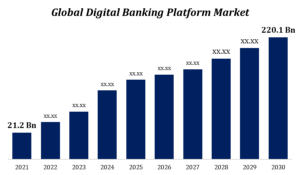Fintech’s Role in Financial Inclusion: Reaching Unbanked and Underbanked Populations
Financial inclusion, the accessibility and availability of financial services for all individuals, is a critical component of economic growth and poverty reduction. However, a significant portion of the global population remains unbanked or underbanked, lacking access to basic financial services. Fintech (financial technology) is emerging as a powerful force in addressing this issue by providing innovative solutions that bridge the gap and empower underserved populations. In this article, we will explore how fintech is transforming financial inclusion by reaching the unbanked and underbanked.
Understanding Financial Exclusion:
- Unbanked Population: Unbanked individuals have no access to formal financial services, such as bank accounts, credit, and insurance.
- Underbanked Population: Underbanked individuals have limited access to financial services, relying heavily on informal methods or alternative financial providers.
Challenges Addressed by Fintech:
- Geographical Barriers: Fintech enables digital access to financial services, reducing the need for physical branches and overcoming geographical limitations.
- High Costs: Traditional banking services may come with high fees, making them unaffordable for many. Fintech offers cost-effective alternatives.
- Lack of Infrastructure: Fintech leverages mobile technology, which is often more accessible than traditional banking infrastructure.
- Lack of Credit History: Fintech solutions use alternative data to assess creditworthiness, allowing individuals without formal credit histories to access financial services.
Fintech Solutions for Financial Inclusion:
- Mobile Banking and Payments: Fintech allows individuals to perform transactions, manage accounts, and access financial services using their mobile phones.
- Digital Wallets: Digital wallets offer a secure and convenient way for unbanked individuals to store and transfer money digitally.
- Microfinance and Peer-to-Peer Lending: Fintech platforms facilitate microloans and peer-to-peer lending, enabling access to credit for small businesses and individuals.
- Blockchain and Cryptocurrency: Blockchain technology can provide secure and transparent financial services, particularly in regions with weak banking infrastructure.
- Remittances and Cross-Border Transactions: Fintech simplifies remittances and cross-border transactions, reducing costs and improving accessibility.
Benefits and Impact:
- Financial Empowerment: Fintech offers individuals greater control over their finances, enabling them to save, invest, and plan for the future.
- Economic Growth: Financial inclusion through fintech can contribute to economic growth by fostering entrepreneurship and local business development.
- Reduced Poverty: Improved access to financial services can help lift individuals and communities out of poverty by providing opportunities for saving and investment.
- Improved Financial Literacy: Fintech platforms often provide educational resources to enhance financial literacy among underserved populations.
Challenges and Considerations:
- Digital Literacy: Ensuring that individuals are comfortable using digital financial tools is crucial for successful fintech adoption.
- Regulatory Frameworks: Fintech companies must navigate regulatory challenges to ensure consumer protection while expanding services.
- Data Security and Privacy: Robust security measures are necessary to protect the sensitive financial data of underserved populations.
Future Directions:
- Partnerships and Collaboration: Collaboration between fintech companies, governments, NGOs, and traditional financial institutions can accelerate financial inclusion efforts.
- Localized Solutions: Fintech solutions should be tailored to the unique needs and preferences of specific populations and regions.
- Advancements in Technology: As technology evolves, fintech solutions can become even more accessible and user-friendly, further promoting financial inclusion.
Fintech has the potential to revolutionize financial inclusion by providing accessible, affordable, and user-friendly solutions to unbanked and underbanked populations. As fintech continues to innovate and expand its reach, it has the power to break down barriers, empower individuals, and drive economic growth in previously underserved communities. By leveraging the potential of fintech, we can work towards a future where everyone, regardless of their financial background, has the opportunity to access and benefit from essential financial services.
Top of Form


































